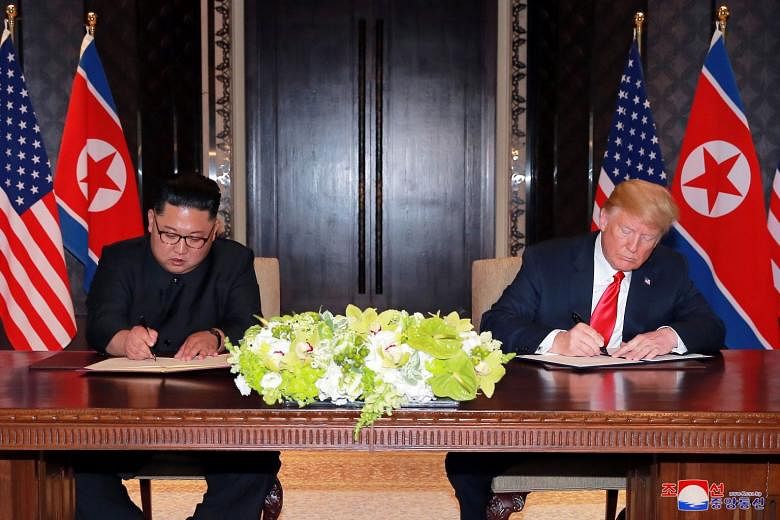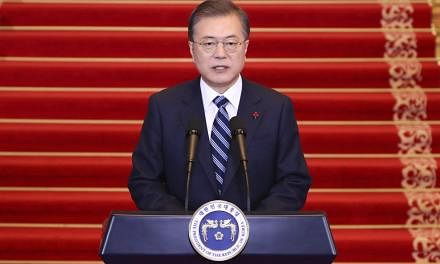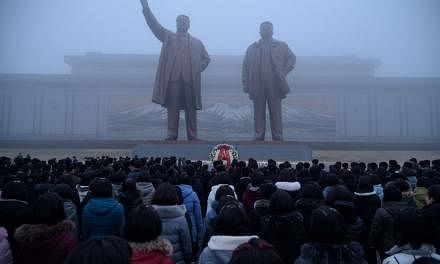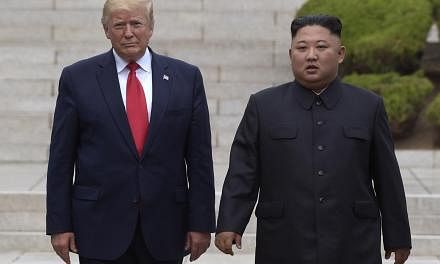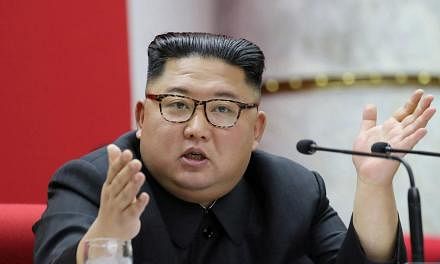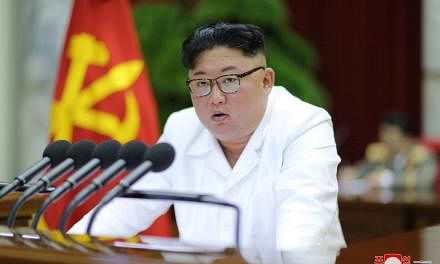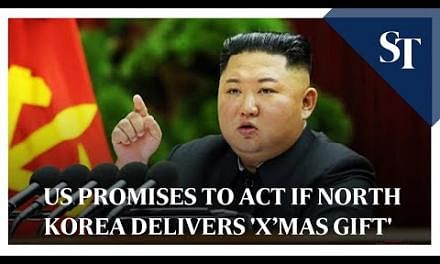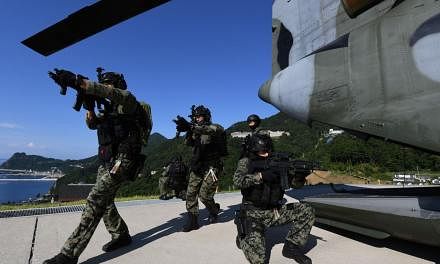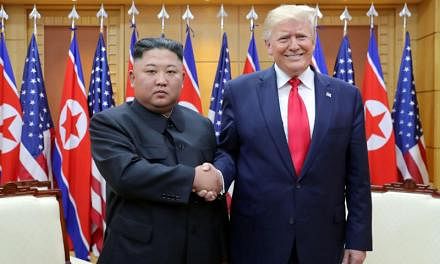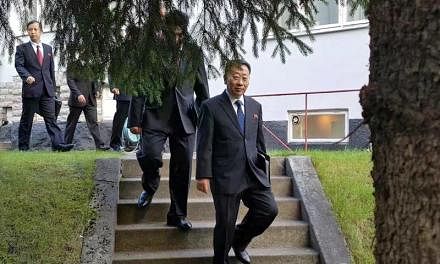LONDON - Given the huge publicity hype and inflated expectations which accompanied the Singapore summit on Tuesday (June 12), it was inevitable that the joint text signed by United States President Donald Trump and North Korean leader Kim Jong Un would be regarded as a letdown. The document says little that is either new or groundbreaking, apart from the inevitable references to the historic nature of the meeting.
Yet as President Trump hinted during his press conference at the end of the talks, some of the more interesting details discussed at the summit are yet to be revealed, and we may only discover their existence as time goes by. But they may provide an important clue as to whether the gathering was a success.
In many respects, the final document of the talks is even thinner than analysts anticipated. Rumours that the document would include specific mentions of the establishment of formal diplomatic relations between the US and North Korea or some information on the kind of security guarantees the US is prepared to offer the North Korean regime in return for Pyongyang's agreement to abandon its nuclear quest were confounded. No such references were made in a paper which only refers to future negotiations on these topics.
Nor is there any clear information on the format of these future negotiations. Apart from the specific mention of US Secretary of State Mike Pompeo as the key American interlocutor, everything else is left to be clarified at a future date.
And even the references to denuclearisation are vague; the two parties have merely committed themselves to "work towards" the "denuclearisation of the Korean peninsula".
As Mr Alexander Vershbow, who served as US Ambassador to South Korea a decade ago and subsequently became one of the leaders of the North Atlantic Treaty Organisation -the US-led military alliance in Europe - points out, the term "denuclearisation of the Korean peninsula", as distinct from North Korea's denuclearisation, "has meant the potential withdrawal of the US nuclear umbrella all the way up to the withdrawal of the entire US military presence in South Korea, given that the US is a nuclear power".
So, in consenting to the inclusion of such vague terms, Mr Kim, who is Chairman of North Korea's State Affairs Commission, is, at least at first sight, giving nothing away. Subsequent negotiations can quickly get bogged down in theological debates about who should eliminate what weapon systems and at what rate, or be scuppered by renewed North Korean demands for the US military withdrawal from the peninsula, something no American administration will accept.
But during his subsequent press conference, Mr Trump did offer some tantalising hints of more significant agreements which may have been reached, although they have not been written down in any communique.
In response to a journalist's question, he said that the US would be "stopping the war games" which are "very provocative".
That is a reference to the military exercises which the US regularly conducts on the peninsula and, if these are to be halted as the President now suggests, this would represent a significant concession to North Korea and to China, which have both argued that such American military manoeuvres are a constant source of unnecessary tension. The key question which will preoccupy analysts in the days to come is whether South Korea and Japan, whose governments have a critical interest in this matter, were consulted before Mr Trump offered this apparent concession to his North Korean counterpart.
The US President has also suggested that a North Korean "missile testing site" will be "destroyed very soon", another hint that, despite the bland communique, more has been achieved in the private discussion in Singapore.
Overall, therefore, it is difficult to argue that the summit amounted to nothing more than just a photo opportunity. For, as Professor Francois Heisbourg, a noted European strategy expert who chairs the Council of the International Institute for Strategic Studies, which organises the yearly Shangri-La Dialogue in Singapore, points out, the true significance of the US-North Korea "rapprochement is political".
The fact is that the ice has been broken, that North Korea's hitherto reclusive leader has exposed himself to the world's media in ways neither his father nor his grandfather ever contemplated, and that an American president has met the leader of a country whose very existence Washington was loathe to acknowledge.
Denuclearisation, says Prof Heisbourg, remains, at least for the moment, "a side issue". And, as Mr Trump acknowledged after the summit, the process of denuclearisation will also take a long time.
But Mr Trump, who claimed to be entering the process of talks with North Korea with "eyes wide open", remains convinced that he can accomplish what no US president has achieved for almost seven decades: nuclear disarmament and eventual unification of the Korean peninsula.
"This is a much different time; this is a much different president," said Mr Trump, referring to his North Korean counterpart.

